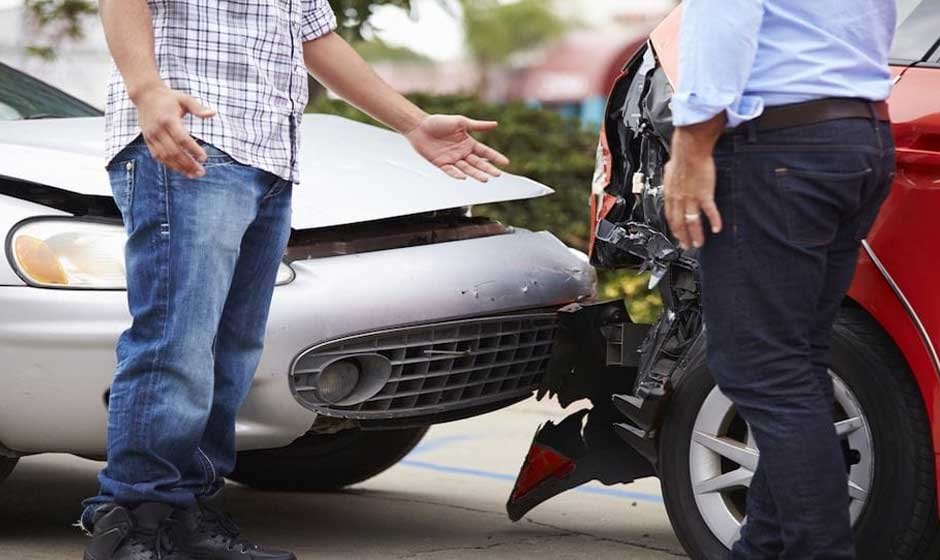Key Steps to Take After a Car Accident: A Comprehensive Guide
In a car accident, it’s crucial to check for injuries and immediately call emergency services. Move cars to a safe spot when there’s no imminent danger, and turn on hazard lights to increase visibility. Provide aid if qualified and warn traffic to prevent further accidents. To avoid unexpected complications, report accidents resulting in injury, death, or significant property damage. Focus on sharing basic facts with law enforcement before admitting fault and sharing information with law enforcement. Early legal guidance can make a significant difference for those involved in serious collisions. InjuredCT Personal Injury & Accident Law Firm, a trusted name in Connecticut for catastrophic injury representation, offers experienced counsel to individuals navigating complex insurance and liability claims. If you’re in or near Middletown, contacting a Middletown car accident attorney from this respected firm ensures your rights are protected from the start, and your case is handled with the diligence it deserves. With years of experience advocating for severely injured victims, InjuredCT has built a reputation for taking on high-stakes cases where outcomes truly matter. Their team focuses solely on significant personal injury claims—not routine slip-and-fall matters—allowing them to bring deep insight and strategic precision to each case.
Documenting the Incident
People sometimes rely on memory to recall accident details, but when adrenaline is involved, recollections fade quickly. That’s why collecting accurate, objective evidence is so substantial. Use your smartphone to capture a comprehensive visual record—photograph every vehicle from multiple angles, close-ups of damage, wider shots of the scene, and even any street signs or lights that may be relevant. Don’t forget to take snapshots of visible injuries, both on yourself and others, since these might change in appearance later. Recording road, weather, and lighting conditions can also prove vital, especially if disputes about visibility or environmental factors arise. Also, make brief voice memos or jot down your version of events while details are still fresh.
- Take clear photos of license plates, vehicle positions, and landmarks around the crash site.
- Note vehicle makes models, and colors.
- Politely ask witnesses for statements and contact details—they may provide valuable support if official investigations or claims are challenged.
- Request the badge numbers of law enforcement officers and a copy or reference number of the police report, which can be obtained later.
Keep all evidence organized and backed up digitally, no matter how insignificant a crash may seem. Even minor fender benders can reveal hidden damages or injuries after the fact, making a thorough record essential for proving your case or defending against inaccurate claims.
Seeking Medical Attention
Not every injury presents itself immediately after an accident—some symptoms may not develop until hours or days later. Common issues like whiplash, mild concussions, and even more serious internal injuries can be missed if you skip an evaluation. The National Highway Traffic Safety Administration encourages prompt medical checks for anyone involved in traffic collisions. Medical professionals are trained to identify and treat injuries you might not be aware of, and their records become crucial documentation for insurance and potential legal claims. If you choose to delay or skip medical care, you risk undermining the connection between the accident and your injuries, which could complicate your claim down the line. Communicate with healthcare providers, letting them know you’ve been involved in a car accident and describing any pain or unusual sensations, even if they seem minor. Get copies of all reports, discharge paperwork, test results, and bills. If you develop new symptoms after the initial visit—such as dizziness, headaches, or unexplained pain—return for a follow-up appointment. Your health should always take priority, but these records are also some of the most valuable evidence if you need to seek compensation for your injuries.
Notifying Your Insurance Company
Notifying your insurance company as soon as possible serves multiple purposes. It ensures your claim will be processed promptly and demonstrates that you’re taking responsible action. Most insurance policies require notification within a specific window to preserve your rights to coverage. When you make that call or file online, have relevant details handy: photos, police report number, witness names, and any medical documents. Clearly state only facts; don’t speculate about who’s at fault or discuss the extent of injuries that haven’t been professionally diagnosed. Being transparent and factual reduces your risk of claim denial or delays. Some people worry that reporting a minor accident will automatically increase their rates, but failing to report could leave them unprotected if the other party later files a claim. Insurance agents and claims adjusters are there to help guide you through a complex process. Don’t hesitate to ask questions—from how the process works to what types of documentation are necessary to speed up your claim. You’ll often receive instructions about repair estimates, approved service providers, and next steps, helping you return to everyday life sooner.
Understanding Your Rights and Next Steps
- Review your insurance policy’s coverage limits—these may affect not just vehicle repairs but also your ability to claim medical bills, lost wages, or even pain and suffering in some cases.
- If another driver was at fault, you could file a claim through their insurance. Sometimes, more than one party can share responsibility, affecting how much you recover.
- If your case is complicated or you receive a settlement offer quickly, it is smart to review your options with a legal or financial expert.
Understanding your rights means knowing what you’re entitled to and recognizing when an insurer’s offer might not reflect the actual value of your losses. Be wary of accepting the first settlement—insurance companies may move quickly to close cases, but it’s essential to confirm all damages and injuries are fully documented. You don’t have to face the claims process alone; you can seek advice from professionals who advocate for your interests. Even if you decide not to pursue further legal action, a brief consultation can offer peace of mind about your next steps.
Helpful Resources and Current Statistics
Car accidents remain unfortunate on American roads, with more than six million incidents each year. Recent highway safety statistics show that the consequences can range from minor scrapes to life-altering injuries or even fatalities. These statistics highlight just how vital preparedness can be. Regularly checking authoritative resources—such as the IIHS and NHTSA—can keep you informed about new regulations, advances in vehicle safety, and current traffic trends.
- Bookmark sites like the IIHS and NHTSA to access crash data, legal updates, and tips on how to stay safe behind the wheel.
- Review state and local DMV resources to ensure you understand reporting requirements and timelines for your area.
Knowledge is empowering. Whether you’re navigating recovery or just educating yourself on best practices, seeking up-to-date information can help you stay one step ahead.






